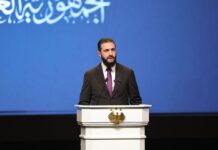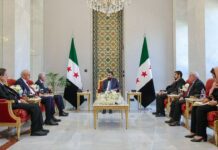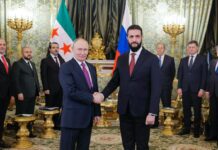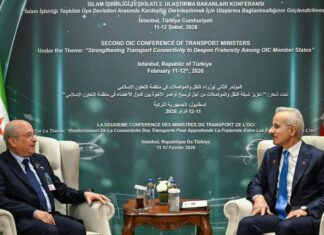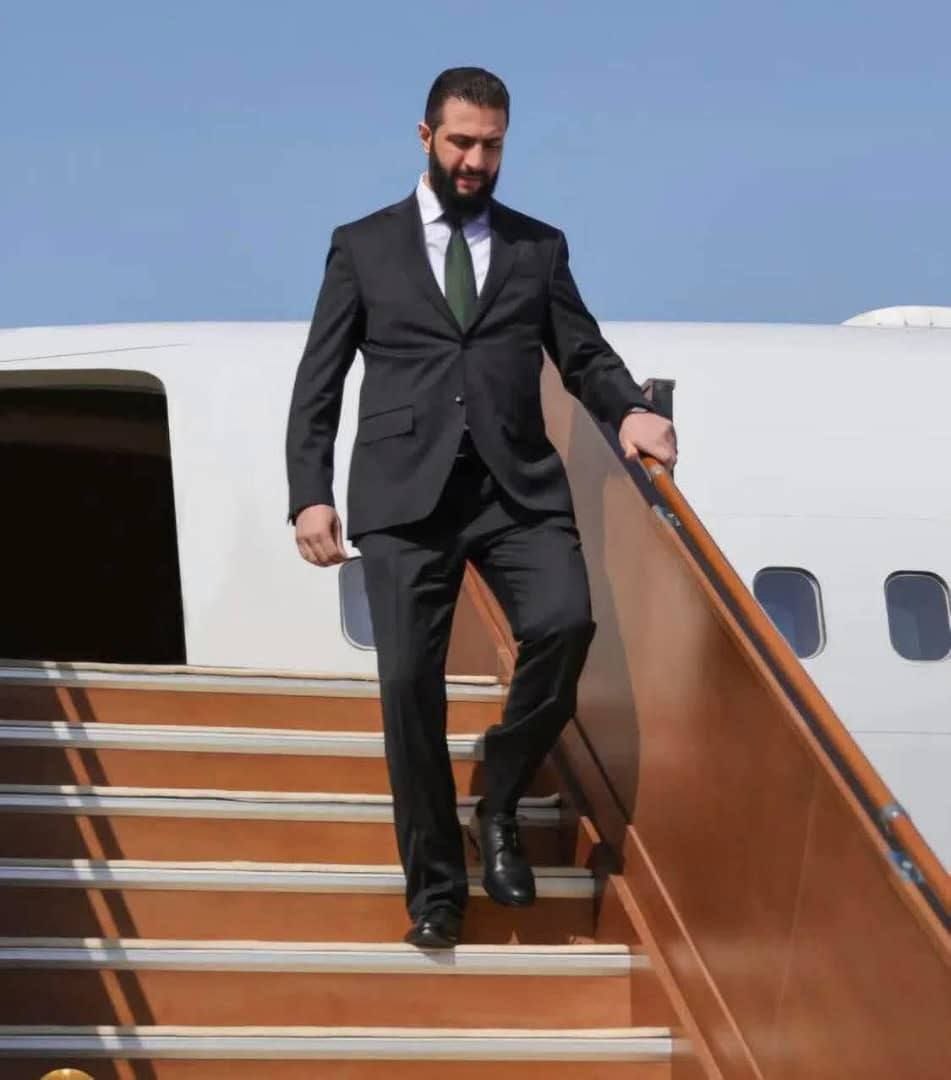 Syrian President Ahmad al-Sharaa will travel to Moscow tomorrow Wednesday, October 15 for his first official visit since taking office, where he is expected to attend the Arab-Russian Summit and hold bilateral talks with Russian President Vladimir Putin. The visit, confirmed by Syrian officials to Reuters, marks a pivotal moment in redefining Syria’s post-Assad relationship with Moscow.
Syrian President Ahmad al-Sharaa will travel to Moscow tomorrow Wednesday, October 15 for his first official visit since taking office, where he is expected to attend the Arab-Russian Summit and hold bilateral talks with Russian President Vladimir Putin. The visit, confirmed by Syrian officials to Reuters, marks a pivotal moment in redefining Syria’s post-Assad relationship with Moscow.
Sharaa will be joined by Syria’s ministers of foreign affairs and defense, as well as the intelligence chief, according to state sources. The delegation’s agenda includes discussions on Russia’s continued military presence in Syria and a possible reconfiguration of bilateral agreements.
The new president is also expected to formally request the extradition of former dictator Bashar al-Assad—who has lived in exile since his ouster—for trial in Damascus. “President Sharaa will seek accountability for the crimes committed against Syrians during the previous regime,” a Syrian official told Reuters on Tuesday.
Moscow Emphasizes “Special Significance” of Summit
Russian Foreign Minister Sergey Lavrov told Russia Today that Sharaa’s presence at the summit “holds special significance,” describing it as an opportunity to strengthen cooperation while respecting Syria’s sovereignty. He said Moscow’s relationship with Damascus remains “friendly and non-opportunistic.”
Lavrov noted Russia’s military facilities at the Tartous naval base and Hmeimim airbase would remain “only as long as necessary.” He added that both sites could serve humanitarian functions, enabling aid deliveries from Russia and Gulf countries to African states.
“The Russian presence today is not to support one side against another,” Lavrov said. “It is to ensure stability and provide a platform for cooperation.” Lavrov also confirmed that several joint projects suspended during the war may soon resume, albeit “with modifications to suit the new situation.”
Syria Pushes for an End to Foreign Interference
Ahead of the summit, Damascus renewed its calls to end foreign intervention in Syrian territory, emphasizing that large areas remain under the control of forces not invited by the government. Sharaa, who has sought to reassert Syrian sovereignty while maintaining ties with Moscow, has positioned this demand as central to his foreign policy.
“Foreign forces operating without coordination with Damascus undermine stability and sovereignty,” Lavrov acknowledged, echoing Syria’s stance. The Russian diplomat also addressed Israeli security concerns, saying, “Israel insists on a buffer zone in southern Syria. We understand its legitimate concerns, but the interests of all parties must be balanced.”
Balancing Independence and Alliance
The Moscow visit is expected to test the evolving balance between Syria’s new leadership and its long-time ally. Analysts say Sharaa faces the challenge of preserving Russia’s strategic partnership while signaling that Damascus is charting an independent course. Both governments have portrayed the talks as a chance to reinforce stability after years of conflict and political upheaval. As Lavrov said Tuesday, “Syria’s unity must remain a concern for all friendly nations.”

